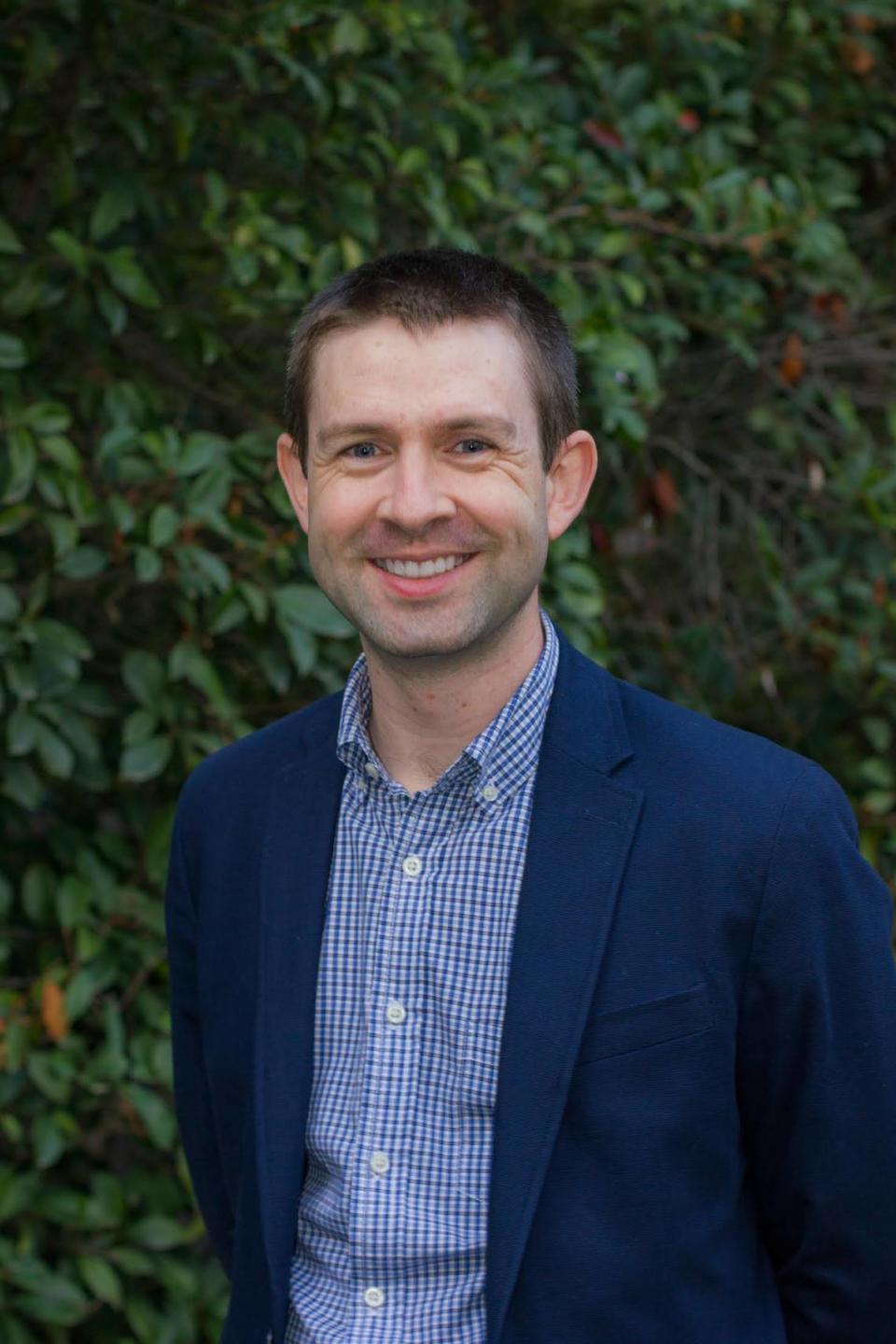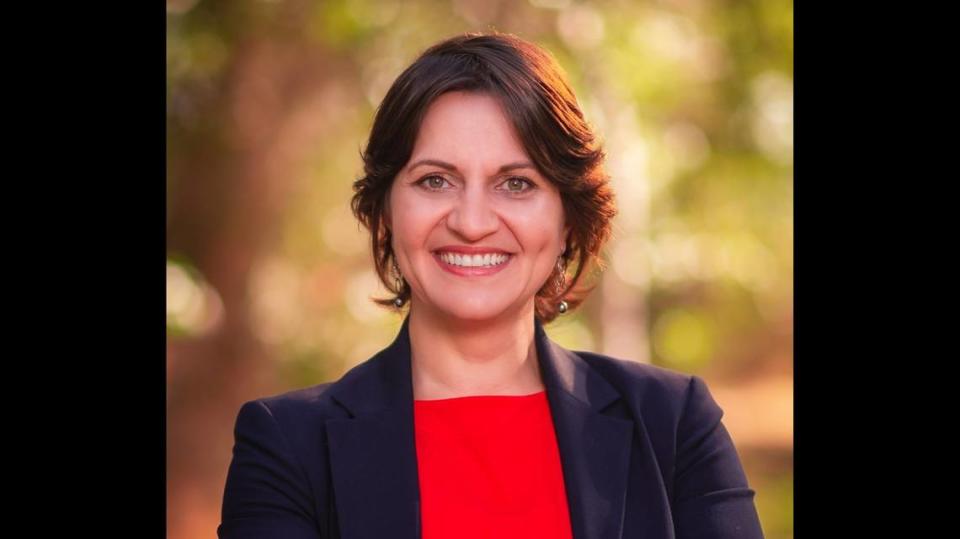Pro-con on Fresno County’s ‘Parents Matter’ Act and children’s books review panel | Opinion
- Oops!Something went wrong.Please try again later.
One of the most contentious local issues in the past few months was a proposal by Fresno County Supervisor Steve Brandau to form a review committee to oversee children’s books at the public library.
He took up the call of some parents who did not want their children to see books on display about LGBTQ+ people or that were sexually explicit. The board ultimately approved creating the committee.
The Bee has published numerous letters to the editor on the topic, most by readers in opposition. Many of them called the review panel a form of censorship and that parents, not appointed community members, should monitor what children can read.
Today The Bee offers two essays in a pro-con format on the topic.
Pro: Book review plan is reasonable
By John Gerardi, executive director, Right to Life of Central California
To understand Supervisor Steve Brandau’s legislation for updated standards in Fresno County libraries on books for children relating to sexual topics, I offer my family’s experience at our local library branch.
Based on our experience and basic principles of democratic governance, the county supervisors are completely justified in adjusting library curation standards around these topics.
Opinion
My wife and I went to the Clovis branch of the Fresno County library recently with our children. Our 8-, 7-, and 5-year-old are home-schoolers and avid readers. My wife was trying to find a good kids’ book on human anatomy to teach them about the respiratory system.
While browsing, my wife found two books, both of which were at little-kid-eye level. These books were “Making a Baby” by Rachel Greener and Clare Owen, and “Sex Is a Funny Word “by Cory Silverberg and Fiona Smyth. Amazon lists Greener and Owen’s book as being directed to children aged 5-8; Silverberg and Smyth’s book is for children 8-10.
In one of its first pages, Greener and Owen describe the fact that our bodies change in ways that help people to make babies. The child-appealing illustration accompanying this narrative shows what appears to be a public gym locker room with an open shower plan. Two naked adult men, with their genitals fully exposed, are showering alongside what appears to be a naked boy, maybe 4 or 5 years old. Barely around the corner from the men was a little girl putting on her clothes, again maybe 4 or 5 years old.
There was no indication that the persons in the image were related. Normalizing such a situation to small children is irresponsible and inappropriate for their development.

Silverberg and Smyth’s book is in various ways worse. It consistently and repeatedly encourages kids to challenge or question parental guidance about sex in various respects.
After talking glowingly about how “warm and tingly” masturbation can make us feel and showing an illustration of a girl in a bathtub masturbating, the authors proceed to ask the (8- to 10-year-old) reader, “Do you know if there are rules in your family about touching yourself? If there are rules, do they make sense to you?”
In a page on the word “sexy,” Silverberg and Smyth say, “Some people think that sexy feelings should only happen in grown-up relationships. And many grown-ups say that sexy is a word to use only when you’re older. What’s for sure is that sexy is a word with a lot of different meanings, so it’s good to think about what you mean when you use it.”
Frankly, I think it ranges from incredibly unhelpful to flatly dangerous for 8- to 10-year-olds to be “thinking for themselves” about identifying as “sexy.” I find the subtle challenges to parental authority throughout this book to be flatly wrong.
I relate all this to make two points:
1. Many of the public critiques of Brandau’s proposal argue that we should leave curation decisions to the “experts” in the Fresno County library system, and that it is inappropriate of him to interfere with their work. Even if librarians were all experts in childhood social and sexual development, their decisions are not above democratic scrutiny by the voters and taxpayers of Fresno County through their elected representatives, the Board of Supervisors.
The supervisors’ job is just that: to supervise county institutions like the library. According to the Fresno County library’s catalog system, five copies apiece of these two books are in circulation. Their approval was hardly a one-off mistake, and reflects librarians using inadequate review standards.
2. Libraries are within their rights to reject books that fail to meet all kinds of standards, including that of literary merit. If someone donated to the library a book for 5-year-olds riddled with profanities or explicit sexual content, a librarian could pitch it out entirely on that basis alone.
Deciding that a book intended for children is not appropriate to healthy childhood development, and merely restricting it such that a child can only check it out with an adult (as Brandau proposed), is hardly a First Amendment-violating “book ban.” It is basic library curation.
Kudos to Steve Brandau. His legislation is a helpful democratic corrective to a genuine problem within our local libraries.
Con: Banning books is never good
By Noha Elbaz, Clovis resident and college administrator
In another display of their unseriousness, Fresno County Supervisors Steve Brandau, Buddy Mendes, and Nathan Magsig, (with special appearance from Clovis’s own person-who-professionally-chases-attention, Diane Pearce) passed the ironically named “Parents Matter” library act.
The act, which proves Brandau can parrot far-right-wing talking points and access a local Kinkos to enlarge pictures, does its best to censor books (and people). Parents matter, but only the ones liked by these four.
It was 1953 when the American Library Association and the American Book Publishers Council issued the “Freedom To Read Statement” which read, in part, “The freedom to read is essential to our democracy. It is continually under attack. Private groups and public authorities in various parts of the country are working to remove or limit access to reading materials, to censor content in schools, to label ‘controversial’ views, to distribute lists of ‘objectionable’ books or authors, and to purge libraries.
“These actions apparently rise from a view that our national tradition of free expression is no longer valid: that censorship and suppression are needed…as to avoid the subversion of politics and the corruption of morals…We [who are] responsible for disseminating ideas, wish to assert the public interest in the preservation of the freedom to read.”

These days we see a sharp rise in books being challenged across the country, and there are more coming. We already know what’s next, as these small-minded politicians are nothing if not predictable. The current director of the ALA’s Office for Intellectual Freedom, Deborah Caldwell-Stone, explained the plan:
1: Remove the books in school libraries.
2: Claim they can be accessed in public libraries.
3: Remove them from the public libraries.
The result? As Caldwell-Stone puts it, “essentially depriving everyone of the ability to make the choice to read them.”
The books being challenged will be ones about and for the LGBTQ+ community and about and for people of color. In other words, Brandau, Mendes, Magsig, Pearce and those like them will continue the efforts aimed at further marginalizing “others.”
In Fresno County, there already exists a process to file complaints about material in the library, as was acknowledged by this group. A process developed, vetted, and administered for years by a group of librarians educated and trained in the field. A process that has worked, but why let success get in the way?
Their combined total of zero years of experience in libraries, publishing, or childhood education have led Brandau, Mendes, and Magsig to conclude the solution to the (nonexistent) problem is government interference from a group of political appointees. Why trust experts when Steve Brandau can decide what’s appropriate for your kid? He can take them to Kinkos!
The sad truth is, there might be no group of people more in need of a professional librarian than these three. They could learn about the history of public libraries, the role founding father Benjamin Franklin played in starting them, t that librarians are professionals with extensive and role-specific education.
They might even learn that in the not-so-distant past, some libraries were complicit in censorship right here in the Central Valley, like when the Kern County Free Library complied with the countywide ban against John Steinbeck’s “The Grapes of Wrath” until 1941.
Outside of political theater, nothing is gained by limiting access to books. Yet so much is lost.
In words that still resonate today: “We believe … that what people read is deeply important; that ideas can be dangerous; but that the suppression of ideas is fatal to a democratic society. Freedom itself is a dangerous way of life, but it is ours.”

